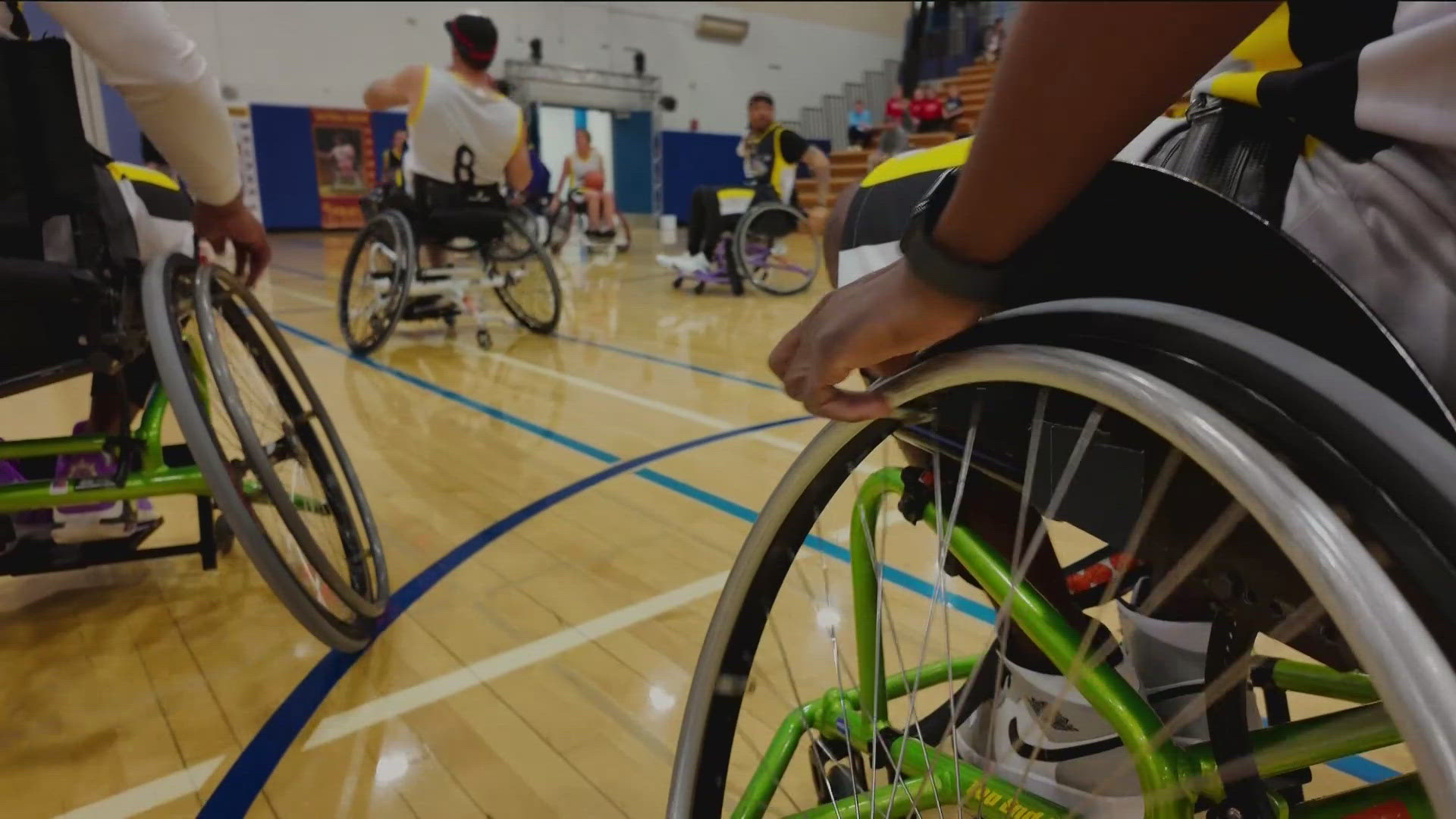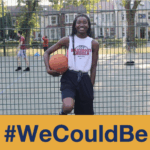
Beyond the Finish Line: My Journey and the Power of Adaptive Sports Scholarships
I remember a time, not so long ago, when the world felt a bit smaller, the possibilities a little narrower. Life had its own way of throwing curveballs, and for a while, I thought my path was pretty well laid out for me, with clear boundaries I couldn’t cross. The idea of competing, truly pushing my limits in sports, seemed like a distant dream, something I watched others do from the sidelines. I loved the energy, the camaraderie, the sheer thrill of it all, but I couldn’t quite see myself in that picture. My disability, while a part of me, often felt like a barrier, a silent gatekeeper to adventures I longed to embark on.
Then, something shifted. It wasn’t a sudden, dramatic movie moment, but a slow dawning, like the sun peeking over a distant mountain. I stumbled into the world of adaptive sports. I started with something simple, just trying it out, mostly out of curiosity and a nudge from a friend who saw something in me I hadn’t quite recognized yet. The first time I felt the wind in my face, the muscles burning, the focus sharpening, it was exhilarating. It wasn’t about being "disabled" anymore; it was about being an athlete. It was about strategy, endurance, and the pure, unadulterated joy of movement. I found a community of individuals who understood the challenges but focused on the solutions, on what could be done. Whether it was the rhythmic push of wheelchair racing, the precise aim of goalball, or the strategic maneuvers of adaptive rowing, each sport opened up a new vista of personal achievement.
But as I delved deeper, the practical realities started to surface. Adaptive sports, while incredibly empowering, aren’t always cheap. The specialized equipment alone can be a significant investment – a racing chair, a handcycle, or even a modified kayak isn’t something you pick up at your local sporting goods store for a few bucks. Then there are coaching fees, travel expenses for competitions, entry fees, and the sheer logistics of getting to and from training. For many of us, pursuing these passions meant making difficult choices, sometimes putting our dreams on hold because the financial burden felt too heavy. I saw talented athletes, full of potential, struggle to keep up, or worse, have to step away from the sport they loved because they simply couldn’t afford it.
That’s when I first heard whispers, then clearer conversations, about adaptive sports scholarships. My initial thought was, "Scholarships? For sports? And for us?" It felt too good to be true, almost like finding a hidden treasure map to a future I hadn’t dared to imagine. But as I started digging, talking to coaches and more experienced athletes, I realized these weren’t myths; they were very real, transformative opportunities. They were designed specifically for student-athletes with disabilities, recognizing not just their athletic prowess but also their academic ambition and their incredible resilience.
So, what exactly are these adaptive sports scholarships I’m talking about? Well, imagine a bridge. On one side, you have talented student-athletes with disabilities, brimming with potential, academic dreams, and a burning desire to compete. On the other side, you have higher education, professional coaching, state-of-the-art facilities, and the chance to be part of a collegiate team. Adaptive sports scholarships are that bridge. They provide financial assistance, often covering tuition, room and board, books, and sometimes even specialized equipment or travel expenses for competitions. They exist to ensure that a physical challenge doesn’t become an educational or athletic roadblock. These scholarships are a testament to the idea that talent, hard work, and determination should be recognized and supported, regardless of one’s physical circumstances. They say, loud and clear, "You belong here. Your potential is limitless."
For me, understanding these scholarships was like seeing the path ahead suddenly illuminate. It wasn’t just about affording college; it was about gaining access to a structured environment where I could thrive both academically and athletically. It was about being seen not just as a student, or just as an athlete, but as a whole person with unique contributions to make.
The impact of these scholarships, both on individuals and on the broader community, is truly profound. Let me tell you why they matter so much, why they’re more than just financial aid.
First and foremost, they open doors to education. For many student-athletes with disabilities, the cost of college can be an insurmountable hurdle. An adaptive sports scholarship can be the deciding factor between pursuing a higher education and having to forgo it. It means access to world-class professors, diverse learning environments, and the critical thinking skills that come from a college experience. It’s about building a future, not just on the sports field, but in a classroom, in a career, and in life. It empowers us to pursue degrees that will lead to meaningful careers, allowing us to contribute our unique perspectives and talents to society.
Then there’s the athletic development. Collegiate adaptive sports programs are often incredibly well-resourced. We’re talking about dedicated coaches who understand the nuances of adaptive sports, strength and conditioning specialists, sports psychologists, and access to top-tier training facilities. This isn’t just about staying fit; it’s about refining technique, pushing personal bests, and competing at an elite level. For many, these programs are a stepping stone to national and international competitions, even the Paralympic Games. I’ve seen friends who, with the right coaching and support, transformed from passionate amateurs into world-class athletes, all thanks to the opportunities provided by their scholarships.
Beyond the academic and athletic benefits, these scholarships foster immense personal growth and confidence. When you’re part of a college adaptive sports team, you’re not just an individual; you’re part of a unit. You learn teamwork, leadership, discipline, and how to overcome setbacks. There’s a powerful sense of belonging, a shared purpose that builds self-esteem and resilience. Being recognized for your athletic and academic achievements, especially after facing various societal and physical challenges, is incredibly validating. It sends a message: "You are capable. You are valued. You are strong." This newfound confidence often spills over into all areas of life, from academic performance to social interactions and future career endeavors.
These scholarships also play a crucial role in breaking down stereotypes and promoting inclusion. When adaptive sports teams compete alongside or within mainstream university athletic programs, it changes perceptions. It shows everyone that disability doesn’t equate to inability. It highlights the incredible talent, strength, and determination of athletes with disabilities. This visibility is vital for fostering a more inclusive society, one where everyone has the chance to participate and excel. It inspires younger generations with disabilities to dream big, knowing that paths to success, both academic and athletic, are being forged for them.
So, how does one even begin to find these life-changing opportunities? I remember feeling a bit overwhelmed at first, like looking for a needle in a haystack. But with some guidance, I learned where to focus my search.
A great starting point is university athletic departments, especially those that already have established adaptive sports programs. Many forward-thinking colleges and universities are actively building and expanding their inclusive sports offerings, recognizing the value and talent that adaptive athletes bring. Websites of institutions known for their adaptive programs, like the University of Illinois Urbana-Champaign, the University of Arizona, or Edinboro University, often have dedicated sections for prospective adaptive athletes and scholarship information. Don’t be shy about reaching out directly to their coaches or admissions offices. A personalized email can go a long way.
Another valuable resource is national governing bodies for adaptive sports. Organizations like the United States Olympic & Paralympic Committee (USOPC), the National Wheelchair Basketball Association (NWBA), US Paralympics Track & Field, or US Adaptive Ski & Snowboard, often have resources or can point you toward collegiate programs and scholarship opportunities. They are usually well-connected within the adaptive sports community and can provide invaluable guidance.
Then there are non-profit organizations and foundations dedicated to supporting individuals with disabilities or promoting adaptive sports. Many of these organizations offer their own scholarships or maintain lists of external funding opportunities. A quick search for "disability sports scholarships" or "adaptive athlete grants" can unearth a wealth of information. Local community foundations can also be surprisingly helpful, sometimes offering scholarships specific to residents of their area.
Finally, don’t underestimate the power of your network. Talk to your current coaches, mentors, physical therapists, and other adaptive athletes. Word of mouth and personal connections are incredibly powerful in this community. Someone you know might have heard about an opening, a new program, or a scholarship that perfectly fits your profile.
Once you’ve found a few promising leads, the application process itself can seem daunting, but it’s entirely manageable if you break it down. My advice to anyone applying is to approach it like you would any important project: with preparation, passion, and persistence.
Most scholarships will require academic transcripts to demonstrate your commitment to your studies. Maintain good grades; your academic record is just as important as your athletic achievements. They want to see that you’re a well-rounded student who can handle the rigors of college life.
You’ll also need an athletic resume or portfolio. This is where you showcase your sporting achievements. List your sports, teams, personal bests, competition results, and any awards or recognition you’ve received. If possible, include links to videos of you competing. A picture truly is worth a thousand words, and a video can tell your story of dedication and skill much more powerfully.
Perhaps the most crucial part of the application is the personal essay. This is your chance to tell your story. Don’t just list your accomplishments; explain what adaptive sports mean to you. Talk about the challenges you’ve faced, how you’ve overcome them, and what your dreams are for the future. Share your passion, your resilience, and why you believe you deserve this opportunity. This is where your unique voice shines through, where you connect with the scholarship committee on a human level. I remember spending hours on my essay, pouring my heart into it, trying to convey not just my achievements but the fire within me.
Letters of recommendation are also key. Seek out coaches who know your athletic ability and character, teachers who can speak to your academic potential and work ethic, and mentors who have seen your personal growth. Choose people who can genuinely articulate your strengths and your potential for success both on and off the field.
And finally, be prepared for an interview. This might be in person or virtual, but it’s your opportunity to make a direct connection. Practice answering questions about your goals, your experiences, and why you want to attend their institution and join their team. Show your enthusiasm, your commitment, and your personality.
Receiving an adaptive sports scholarship was, for me, nothing short of a life-altering event. It wasn’t just about the money; it was about the validation, the belief that others saw my potential and were willing to invest in it. It gave me the freedom to focus on my studies and my training without the constant worry of financial strain. I got to learn from incredible professors, push myself alongside dedicated teammates, and compete on stages I once only dreamed of.
My time as a scholarship recipient wasn’t without its challenges, of course. Balancing academics, training, travel, and a social life required immense discipline. There were early morning practices, late-night study sessions, and the pressure of competition. But every hurdle felt surmountable because I was supported, believed in, and part of something bigger than myself. The camaraderie with my teammates, all of us navigating similar paths, created an unbreakable bond. We pushed each other, celebrated victories, and lifted each other up during defeats.
Beyond my own experience, I’ve seen countless others thrive. I’ve watched friends graduate with honors, go on to represent their countries in international competitions, and become leaders in their fields. These scholarships don’t just create athletes or scholars; they forge leaders, innovators, and advocates. They empower individuals to reach their fullest potential, contributing not only to their own lives but to the fabric of a more inclusive and understanding world.
The narrative of adaptive sports scholarships is a powerful one, a story of breaking barriers and building futures. It’s about recognizing that talent is universal, but opportunity is not always equally distributed. By providing these crucial scholarships, we are not only supporting individual dreams but also collectively investing in a more equitable and inspiring society. We are demonstrating that physical challenges do not define a person’s capability or their potential for greatness.
So, if you’re a student-athlete with a disability, or you know someone who is, please understand that these opportunities exist. They are real, and they are waiting to be discovered. Don’t let doubt or the perceived cost of higher education or elite sports hold you back. Start exploring, start asking questions, and start believing in the incredible journey that awaits you. The finish line isn’t an end; it’s just the beginning of your next great adventure, and with the right support, there’s no telling how far you can go. The world of adaptive sports and the scholarships that fuel it are powerful reminders that with courage, perseverance, and a little help along the way, we can all reach beyond the finish line and truly soar.


